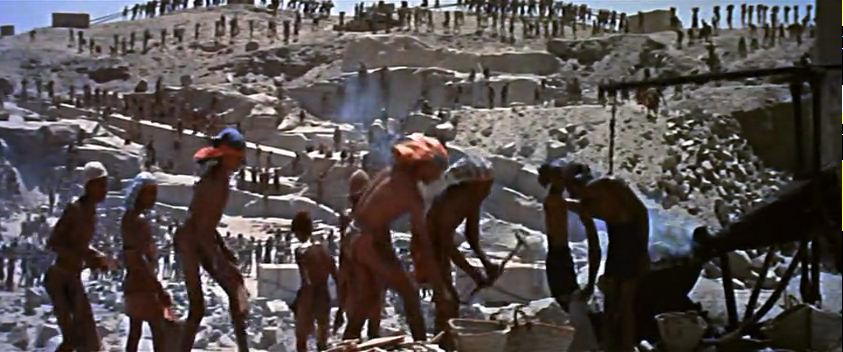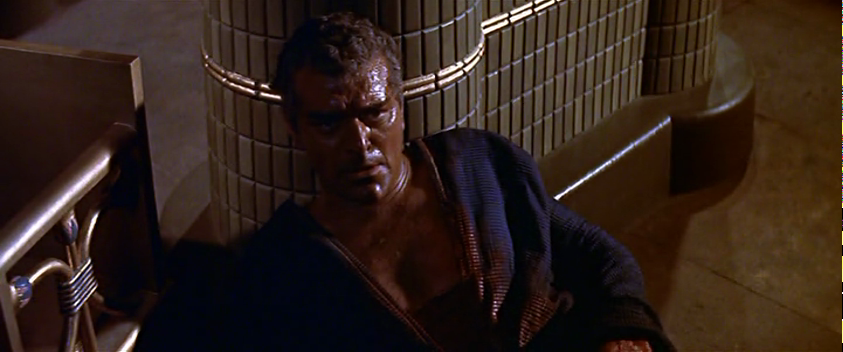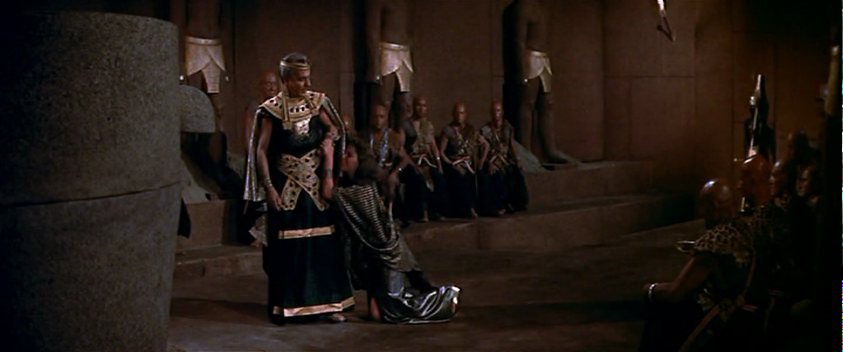
Mea culpa: How could I have excluded Howard Hawks’ masterpiece Land of the Pharaohs from the list of my thousand favorite films in Essential Cinema? Clearly I had better taste in recognizing the film’s greatness in 1955, at age 12, before being brainwashed by such factoids as the movie’s commercial failure or complaints about the contemporary-sounding dialogue in a film set in ancient Egypt (“the feeling is mutual”), amplified later by Hawks and/or his screenwriter William Faulkner saying “I didn’t know how a Pharaoh talked.” But surely the ruse of having Jack Hawkins speak with an English accent and allowing Dewey Martin in his slave part not to lose his American accent wasn’t the worst of solutions. In any case, did anyone ever fault Rio Bravo because Hawks, Jules Furthman, and Leigh Brackett didn’t know how 19th century cowboys talked? I’d rather praise Land of the Pharaohs for its contemporary relevance 68 years later, with Hawkins as its ruthless Pharaoh and Joan Collins as his equally greedy Queen and successor epitomizing the dog-in-the-manger capitalism of Donald and Melania that currently rules the Republican Party. Or for Alexandre Trauner’s spectacular set design and the film’s intricately choreographed movements and layers of extras.

I was spurred to see this again by my rediscovery, thanks to James Naremore, of Pedro Costa’s brilliant and poetic piece about it eight years ago in Film Comment (you can Google it for a link), built around thoughts about “Time and Death” and ending with a beautiful and appropriate quote from Faulkner’s Pylon. (It’s also worth checking out Bill Krohn’s essay about it in his Letters from Hollywood 1977-2017, which also treats it as a personal allegory for Hawks, with the building of a pyramid standing in for his own construction of an epic movie.) It’s a film whose monumentality continues to impress even when it’s seen on a laptop, perhaps because it focuses on an absolute monument. [5/8/23]

